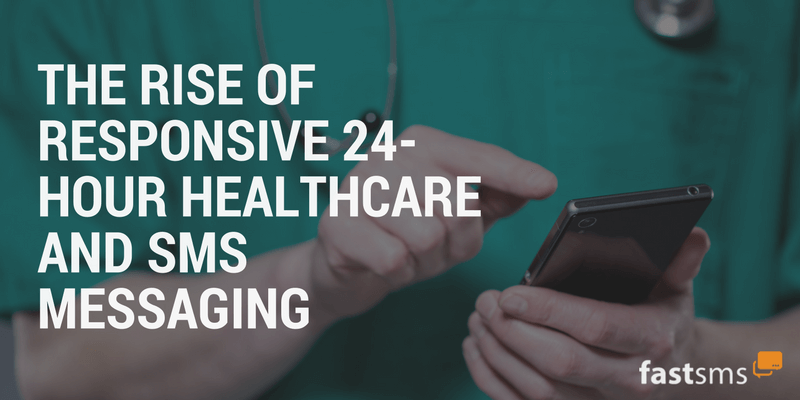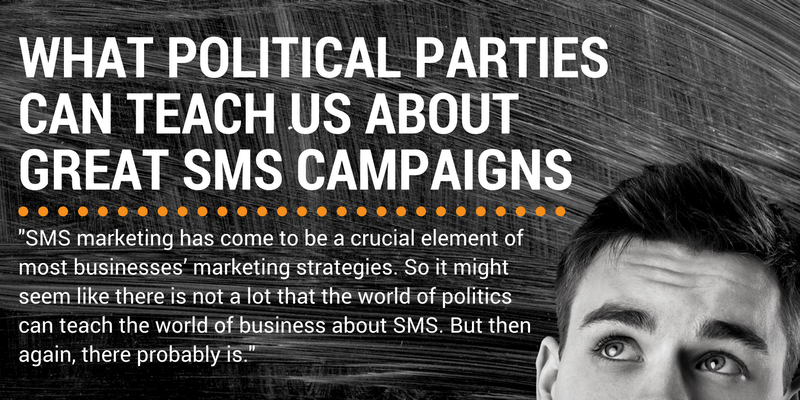When the Internet Goes Down, SMS Messaging Can Save the Day

A few weeks ago, Amazon’s S3 cloud server on the east coast of the US went down. According to an article on mobilemarketer.com, 54 of the top 100 online retailers went with it. Some of the hardest hit are recognisable American retailers like Disney, Target and Nike. Also, Docker’s Registry Hub, Twitch.tv, Autodesk’s cloud, Twilio, Mailchimp, Adobe’s Cloud were affected. Even DownDetector.com, a website that keeps track of whether websites and online services are up or down, went down.
What would you do if your online presence went down, or suffered a 1165% slow down like Disney did? Do you have a plan? There are many ways you can deal with the technical issues, but a likely bigger problem is your customers. How will you communicate with them and restore their trust? Here’s a hint: use SMS messaging.
Have a Plan
In the Mobile Marketer article, Justin Bougher, a vice president at SiteSpect said, “The key is to be prepared and have a response that has a minimal negative impact on customer experience or can convert the negative impact to a positive one.”
He goes on to say that those responses could be via text message, email, or even direct phone calls in certain situations. Which one is appropriate can depend on several things, including the “life time value of the customer”.
The time sensitivity of the downtime matters too. If your site goes down during a critical period (like Cyber Monday), or a whole portion of the Internet goes down (as has happened recently), you might want to assume that people’s access to email or social media could be hampered too.
That means any communication you try to have in those channels may go unheard. Even if social media channels do work for some, there’s no guarantee the message will be seen by your customers. People’s feeds fill up so quickly, and getting noticed is hard.
So, when you need to be sure your customers know what is going on, and what you’re doing about it, send them SMS messages.
SMS Messages Will Work
The SMS protocol doesn’t rely on the Internet. It was designed to work on cellular networks. That means even if websites or servers are down, or if hackers are trying to break the Internet, your message can still get through. Cellular networks can have outages too, but historically it’s much less likely. And when it happens, it’s usually due to a natural disaster damaging towers or from people overloading the system in a wide-spread emergency. And even then, SMS messages can often make it through when voice calls can’t.
When an online disaster affects you, then, you have the choice to use SMS messaging or a combination of different channels. Which one you choose will depend on the circumstances. But SMS is a reliable method you know will work, almost always no matter what is going on elsewhere. The sooner you let the customers or clients that rely on you know what is going on, the better it will be for you, and for them.
Of course, if you’re sending SMS messages, you’ll need to have a reliable service provider. In the context of online disasters, this means a service provider whose services will still be working when other parts of the Internet may not be. This is because most providers use the Internet for some portion of their SMS delivery.
At Fastsms, we have both a main data centre and a disaster recovery location. This means if our servers go down for any reason, our second location will pick up where they left off with little delay (you can contact us if you want to know the details and our service level agreements).
In addition to being prepared, our primary data centre is just one hop away from the main Internet exchanges and SMS gateways. This means that our use of the Internet to send your SMS messages is just a tiny little piece of the whole journey. So, messages sent from our service get into the cellular networks super-fast and delivered to your customers and clients fast too.
Nothing is Perfect
In this day and age, it’s hard to know what will happen with technology. It turned out that Amazon’s issue stemmed from a staffer who mistyped a command into their system. That small mistake cost businesses millions of dollars based on the approximately five hours of downtime experienced. Amazon’s reputation as a cloud provider is certainly damaged, but they are such a large company that they will weather it well.
For everyone else though, it pays to have a plan to notify customers, employees, service providers, or clients when the worst happens. SMS messaging can be one of those options you turn to when you absolutely need the message delivered.
Related Articles
How SMS Messaging Can Help Get Buyers Back
E-commerce businesses have a huge problem. Consumers fill up their shopping carts, then rudely abandon them before completing a purchase. Of course, they don't mean to be rude, they have their reasons for leaving a full cart behind. But what if it were possible to get some of those sales back?
Recruitment Industry Grows With Technology – And SMS Messaging
Recruiters today don’t need to wait for people to find and apply for jobs on the internet. They can simply send a text message out to their database with a new opening and watch the applications stream in. They can save time too, by sending updates to prospects via text message letting them know when their applications are received or processed.
Why Finance Companies Should Excel at SMS Messaging
One of the most interesting use cases for SMS messaging is the financial industry. Just a couple weeks ago I wrote a blog on 7 ways the financial industry can use SMS messaging to communicate with customers. In this blog I'll expand on the topic from a different perspective: personalisation.
The Rise of Responsive 24-Hour Healthcare and SMS Messaging
Every organisation needs to streamline its operations, reduce waste and operate on “lean” principles; from global pharmaceutical companies to local GP surgeries. SMS provides superb value for money in the way it reaches and engages stakeholders. Messages go straight into the hands of the right person in an unmissable way. Backed by an SMS provider in the UK familiar with public and private healthcare, systems can be created to use text messages to save money and time.
Health clubs, New Year’s resolutions, and SMS – a trio for success
Universities and Summer Schools Use SMS to Keep Students Focused
It used to be you could skip a lecture or sleep late at university. But using the excuse you forgot about a session is about to become less believable than it already was. And it's all down to the ways educational institutions are using new technology to engage with students, mainly SMS.
Why a Text Message is Often Better Than an Email or Voice Call
A text message is a very small and condensed piece of communication in contrast to voice messaging or video broadcast. Consequently text messages can get through when network capability is degraded to an extent that makes other options unviable.
What Political Parties Can Teach Us About Great SMS Campaigns
SMS marketing has come to be a crucial element of most businesses’ marketing strategies, and there is plenty of received wisdom within the marketing world as to how to get the most out of your SMS messages. So it might seem like there is not a lot that the world of politics can teach the world of business about SMS. But then again, there probably is.
How Companies Can Use SMS Messaging for Time Keeping and Payroll
In this blog I also share a story from a previous job where timekeeping was critical to the success of the company and how SMS could have helped. For any business needing to keep track of employee time and payroll, SMS is a perfect fit. This simple form of communication is so versatile, it can be used for just about anything.
The Biggest Lie in SMS Marketing
Have you seen articles telling you SMS marketing can’t be used to acquire new customers? Or that it isn’t a good way to so? Don’t believe them. You just have to know how to use SMS to get new people to sign up for your list. Read on to find out how.












